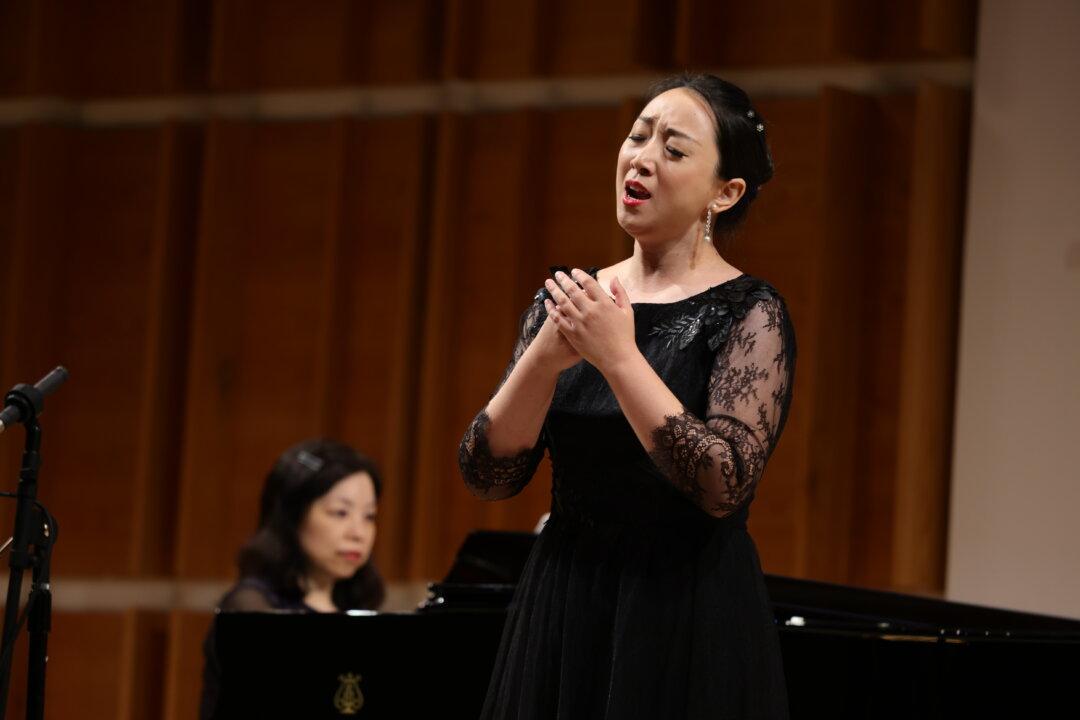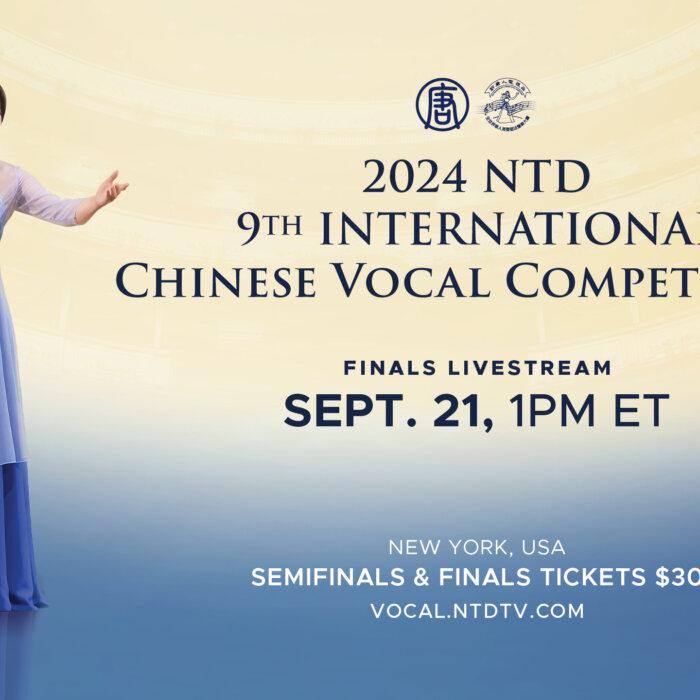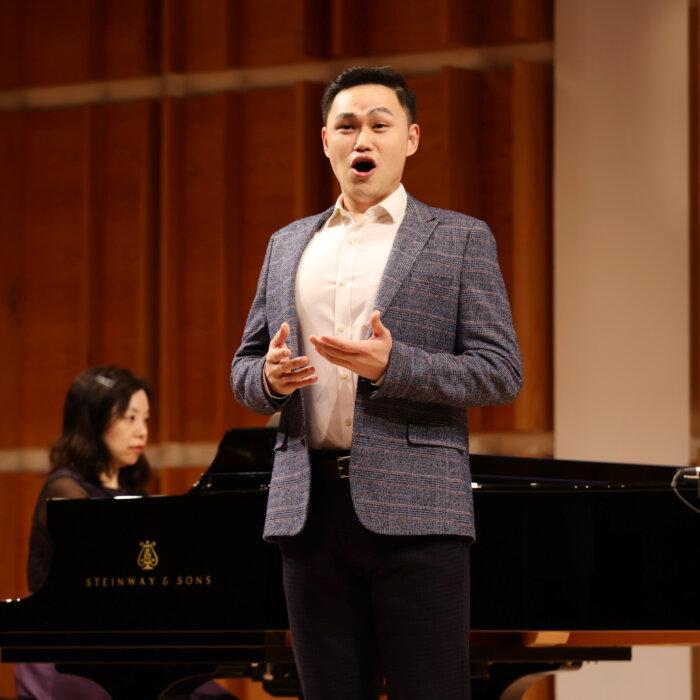Ten singers have made the cut for the final round of the NTD Television 9th International Chinese Vocal Competition, taking place at Merkin Hall of Kaufman Music Center in New York City on Sept. 21. The final round will also be streamed live on Epoch TV and NTD TV, sister media to The Epoch Times.
The competition is part of a series of cultural events hosted by NTD to promote truth, beauty, and goodness, and advance its mission of reviving traditional culture. NTD stands for New Tang Dynasty, a reference to the cultural golden age of China.

The NTD competition is meant to promote traditional bel canto vocal arts, and is unique in that it requires all singers to perform a song in the Chinese language. To this end, the judges of the competition are all experts in bel canto who have performed Chinese language songs in that style extensively.
Min Jiang, soprano, is the head judge of the competition and has served on the panel since the competition began in 2007. She also performed with Shen Yun Performing Arts since its inception in 2006. New York-based Shen Yun is the world’s premier classical Chinese dance company and has been a pioneer in the performing arts world and in reviving the bel canto style as well.
Haolan Geng, soprano, who gained international attention when she won first prize in the NTD vocal competition in 2009, is a judge in the competition this year. Tenor Gu Yun, another artist with Shen Yun serving on the panel, studied voice under Shen Yun Artistic Director D.F. Judges Tian Li, soprano, and Gao Liang, tenor, are both highly accomplished bel canto singers who also perform with Shen Yun and are the recipients of multiple vocal arts competition awards.
Bel canto, Italian for “beautiful singing,” is characterized by the purity, evenness, and beauty of tone, and fluid lines. It was the dominant singing style during the height of Italian opera, frequently associated with composers Mozart and Rossini, but a little known fact is that this style of singing was once used in ancient Chinese theater as well.
Singers from eight countries joined the competition.
Chunqing Zhang, a mezzo soprano opera singer based in Germany, said the unique requirement of a bel canto performance in Chinese was what attracted her to the competition.
“The highlight is this theme to revive traditional Chinese culture,” Zhang said. Born in China, Zhang pursued her vocal performance studies and opera career in Europe, but today tours and teaches all around the world. “This is a mission that is really close to my heart. ... It’s a rare opportunity to perform a traditional Chinese song and I love this music.”
Traditional Chinese art places great emphasis on inner meaning, Zhang said, so she took care to pick a song whose lyrics resonated with her, hoping to communicate the beauty of traditional Chinese culture to listeners. On Saturday, she will perform “A Wonderful Night in Spring,” an ancient Chinese song, as well as “On Don Fatale” from Verdi’s Don Carlo.
Professional opera singers are generally polyglots, adept at conveying the most universal of human feelings and experiences in multiple tongues. Chinese, however, offers a challenge one would not encounter within standard opera and art song repertoire, several singers said.
Namely, the Chinese language uses four tones, modifying a word with a level, rising, falling, or falling-and-rising inflection.
If, in the music, the notes go up but the word goes down, the singer must determine where to subtly place the inflection so that the music, inflection, intonation, and meaning are all correct, said baritone Shaofeng Zheng.
“I’m really grateful for this competition, to have the opportunity to musically bring the best of traditional Chinese culture to people around the world, and through singing, through one of the most beautiful ways to share this culture,” said Zheng, who studied artistic voice and voice medicine, and received his doctor of musical arts in voice performance and pedagogy at Shenandoah Conservatory.
Zheng will be performing two songs in Chinese, “Homeland Nostalgia,” by the Romantic composer Huang Zi, and “Virtues of the silent Orchid” in the finals on Saturday.
Tenor Jun Wen Wong, an opera singer originally from Malaysia, said he was drawn to the competition because he has followed the work of several of the judges, who perform in a strictly authentic bel canto style.
“I really admire this singing style,” Wong said. “And I wanted to participate to see if I could also achieve the pure truth, goodness, and beauty required of the classical arts.
Wong will perform the Chinese song “Homeland,” and “Tombe degli avi miei” from Donizetti’s “Lucia di Lammermoor” in the final round on Saturday.
The finalists are: Shaofeng Zheng, baritone; Vincent Ji, tenor; Jun Wen Wong, tenor; Chunqing Zhang, mezzo soprano; Jieun Lee, soprano; Chau Nguyen, soprano; Yuchuan Zhang, soprano; Fengzhen Liu, mezzo soprano; Yue Li, soprano; and Chia-Yi Huang, soprano.








